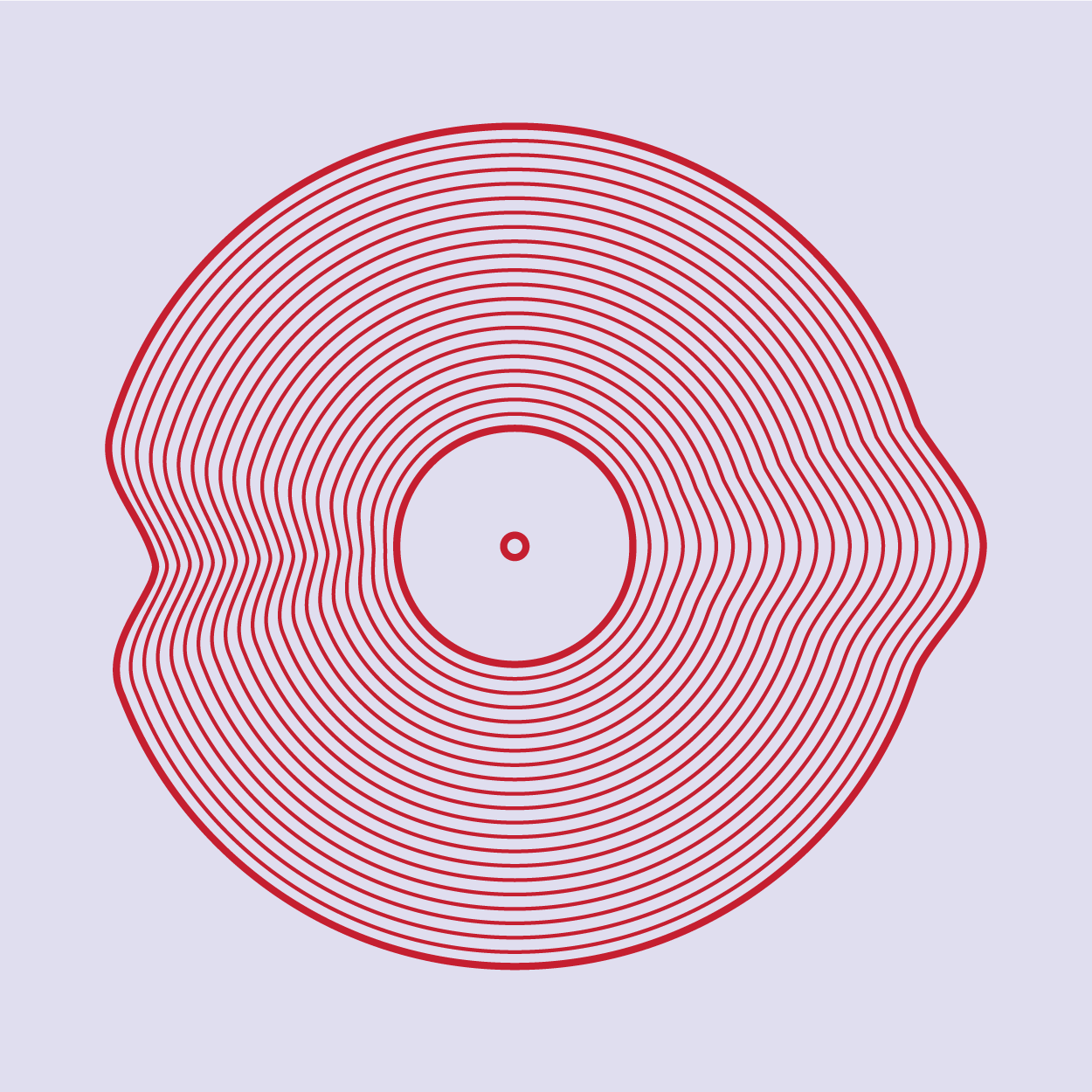
On June 21st 1948 Colombia Records introduced microgroove plastic to the world. It allowed their engineers to achieve the level of detail and dexterity required to fit over 20 minutes of music on a single side of a 12inch vinyl, enough space for between six and twenty tracks. It was in this format that physical music was introduced to the world.
Despite the technological advances that came in the following decades, cassettes in the 60s, CDs in the '80s, this was the format – a collection of songs connected by a creative thread – that endured in an industry that thrived on innovation. It wasn’t until the introduction of mp3s and the digital music revolution in the early '00’s that the cracks started to appear.
Cast your mind back, if you can recall such a time, to when music was a physical product. You could hold it in your hands. Getting it required a trip to the shops, or, in its twilight years, navigating the newfound waters of online shopping. It took up space on your shelf.
To own a record, the cover of which visitors could see, was a statement about your identity. It implied certain tastes, a certain lifestyle and placed you within a particular tribe. Because of the amount of effort and money it took to own music, it had to mean more than simply what it sounded like. There’s a reason “So what music do you like?” crops up so early at first meetings.
For as long as youth culture has existed, the music you listen to is an integral part of the kind of person you are
And so needless to say, when music became digitised, the link between the music you had direct access to and your identity became less obvious. Listeners were able to pick and choose in a way that had been impossible before. Listening to a record, or even a single song, was no longer the commitment it used to be.
Now that music is essentially an all you can eat buffet, people were able to be far less precious about sticking within the safe and accepted confines of a particular genre; the listener could broaden their musical horizons in way that, without a considerable budget and a swimming pool sized record rack, would have been impossible twenty years prior.
The ability to discover was massively important to how we, as a culture thought about music. Stumbling across something completely new no longer relied upon being awake and near a radio at an unusual hour, or an awkward recommendation from a weird uncle. New, obscure music could be searched for, found and listened to in seconds. Artists could reach new fans on the other side of the globe just as easily as if they were a few doors down the road. Giving people the opportunity to hear your record was no longer dependent on them being able to find a copy in a store.
Now that music was essentially an all you can eat buffet, people were able to be far less precious about sticking within the safe and accepted confines of a particular genre
And it is the implications of this breakthrough, the ability for artists to reach an unlimited number of ears, that is calling into question the relevance of ‘the album’. If an artist no longer needs a record company to release and distribute their album, then do they even need an album? What is the value of a collection of songs released together when a musician can arguably just put out a song as soon as it’s ready and have the same reach? Is there still value in ‘the album’ as a format? Or does it need to evolve with the culture?
Traditionally ‘the album’ is considered the most important product a musician can release. They’re a bookmark in the evolution on an artist, a testament to where they are in their career and creative journey. But recently there have been seriously radical approaches that have questioned the existing definition of ‘the album’, and not just from avant-garde, fringe artists, but from some of the most high profile pop stars alive today.
The most obvious example of course being Kanye West’s The Life of Pablo. A record that not only underwent multiple name changes days before release but has since been recalled from, then re-released on streaming service Tidal. It’s been re-mastered, had extra tracks added, before mysteriously appearing on Apple Music, despite Kanye’s previous assertion that “[his] album will never be on Apple.”
All in all it’s inspired more think pieces and column inches than any other record in recent history. This approach calls into question the conventional methods for releasing music and asks if they have any place in today’s world. If an artist can recall and re-release a track as many times as they want, or treat their audience like the world’s biggest focus group, can a record ever be considered definitive?
Recently there have been seriously radical approaches that have questioned the exisitng definition of ‘the album’, and not just from avant-garde, fringe artists, but from some of the most high profile popstars alive today Fred Macpherson, lead-singer of indie-pop outfit Spector agrees. TheLife of Pablo raises questions about the basic idea of recorded music and whether anything now needs to ever be 'finished' if it's not going to exist physically,” says Macpherson.
This is a notion that carries weight. If an album can never be considered the ultimate form with which the artist intended it to be experienced, is it not just a collection of songs rather than a single body of work? Does this mean that these days an album can just be a compilation of singles rather than something a bit more cohesive? If so, why not just release single after single rather than toiling away to fulfil some overarching, possibly out-dated format?
Clare Wright, artist manager at Big Dipper Productions feels this is likely, “In some ways I think the album will disappear and singles will be the norm,” she says. However this isn’t as a revolutionarily new development as you may think, “this is just time coming back around - plenty of great songs in the '60s and '70s were only released as 45s and didn’t make the cut on the album - David Bowie's, John I’m Only Dancing and famously Hey Jude by The Beatles for example.”
If an album can never be considered the ultimate form with which the artist intended it to be experienced, is it not just a collection of songs rather than a single body of work? So if singles are able to replace an album, then what other value is there in the format? Well, people are still quite attached to physical music. Vinyl sales continue to be relatively unfazed by the encroaching digitisation that’s swallowed its descendants. This is thanks to an audience that still values the tangible. In an increasingly digital world, having something that exists in a more tactile sense can be incredibly powerful. “I rarely buy music digitally, because it’s just there now,” says Wright. “It’s too easy, if I want something, I but it physically – I guess that hasn’t changed for a lot of people.”
Another interesting aspect of this issue is that musicians have had to rethink their offering. Tours and live shows have become a more important part of an artist’s job description. A few years ago a tour would have been in aid of promoting an album, nowadays it’s more likely that an album will function to promote a tour.
However this business model is perhaps reserved for the super famous, the Drakes and Rihannas of the world. For the aspiring artists, the approach and their attitudes to albums may be a little different. “I think the music industry will become more fractured,” says Jock Norton of up-and-coming London band, Puppy. He feels that the freedom and independence digital albums offer to aspiring musicians will mean they’ll no longer have to pander to record labels or produce something with mass market appeal. They’ll be able to go as niche as they want because if a label won’t release their album, they’ll just do it themselves.
A few years ago a tour would have been in aid of promoting an album, nowadays it’s more likely that an album will function to promote a tour Perhaps there’s something in the fact that to have a record released suggests a particular level of musical achievement, a stamp of approval from the establishment. “I still think there's a certain prestige associated with being on a label,” explains Norton. “For a lot of people, being (or trying to be) a full time musician can be a fairly thankless task in terms of both finances and social standing, so being able to point to a label and say "they signed me, they believe in me" is very vindicating.”
But surely there’s a time limit on that kind of value. If having a record label agree to pay for and distribute your music was the only way to get your music out there then it would be a pretty airtight arrangement, but that’s no longer the case. “You have all these great examples of culture spreading like wild fire, whether it be Odd Future, Yung Lean, Section Boyz or The Weeknd becoming household names by putting up free mixtapes without labels,” says Macpherson, because musicians are no longer so dependent on the record label, and by extension, the traditional album format that labels trade in, these institutions may start to crumble. The musical revolution, it seems, is far from over.
Key Takeouts
- As music becomes digitised and available en masse, the link between what you listen to and your identity becomes less obvious. Think about how speakers and the technology surrounding music can fill this space.
- Taste in music has become more fragmented and harder to categorise. Recognise that listeners cannot be fitted easily into boxes or genres.
- If the album as a format is faltering, how can we think of new means to distribute and consume music?


